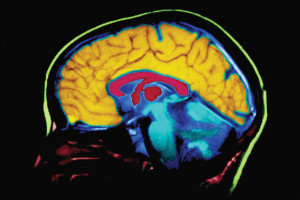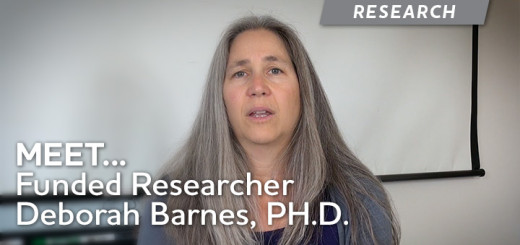More women than men have Alzheimer’s: Could it be in our genes?
 We’ve known for quite some time now that more women than men get Alzheimer’s disease. In fact almost two thirds of Americans with Alzheimer’s are women. However, much of this perceived disparity is often explained by the mere fact that women live longer than average than men.
We’ve known for quite some time now that more women than men get Alzheimer’s disease. In fact almost two thirds of Americans with Alzheimer’s are women. However, much of this perceived disparity is often explained by the mere fact that women live longer than average than men.
But a new study out of Stanford University might shed new light on this disparity. The researchers looked at gender differences in people who have the APOE-4 gene. Scientists estimate that APOE-4 may be a factor in 20 to 25 percent of Alzheimer’s cases. People who have two APOE-4 genes (one inherited by each parent) are at very high risk for getting Alzheimer’s. This study looked at older adults who had one inherited APOE-4 gene.
The claim
Women with a single copy of the APOE-4 gene were more likely than men with a single copy of the APOE-4 gene to test positive for two known biomarkers for Alzheimer’s disease.
The methodology
The researchers looked at two groups of people: 1.) A group of 131 healthy older adults who were given a functional MRI scan to assess activity in their brain networks, and 2.) A group of 91 healthy older adults who underwent spinal taps so their spinal fluid could be examined. Women with a single APOE-4 gene in the first group were more likely to show decreased activity in the brain network. Women with a single APOE-4 gene in the second group were more likely to have high levels of the Tau protein in their spinal fluid. Both of these are biomarkers for Alzheimer’s disease.
Beyond the headline
This is an interesting study as the authors imply that perhaps men with a single APOE-4 gene may not be at higher risk for Alzheimer’s disease (whereas women would still be considered at risk). The researchers also point to the possibility that this gender difference might explain why more women than men have Alzheimer’s disease. The study also raises questions about the relationship between APOE-4 and these specific biomarkers in women.
The bottom line
This study points to new directions in Alzheimer’s research. However, it would be premature to say that this definitively explains why more women than men get Alzheimer’s – in part because the people in the study were healthy adults without Alzheimer’s disease. We don’t know if they will develop Alzheimer’s despite having these risk factors.
Helpful information related to this story
Video: Genetics and Alzheimer’s
Video: Late-onset Alzheimer’s and Genetics
Video: Early-onset Alzheimer’s and Genetics
More about APOE-4 and other genes linked to Alzheimer’s
For more information on the latest news and developments in Alzheimer’s research, visit www.alz.org/research.


















Thanks for sharing the latest Alzheimer’s research. Since information about Alzheimer’s is always evolving, we’ve trained our caregivers to address each person’s needs and engage them in activities while using techniques to approach certain behaviors. It’s an ongoing process, for sure.
Michelle Rogers, Home Instead Senior Care in the South Peninsula
There must be hundreds, if not thudasnos, of cancer patients who also have Altzheimers. If they are taking Bexarotene, wouldn’t that constitute a clinical trial in place? Or, at the very least, provide evidence of beneficial effects or, possibly, greater harm.